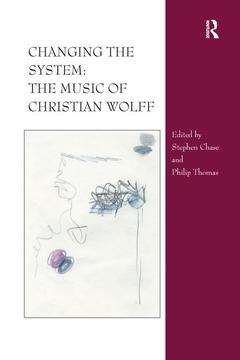Christian Wolff is a composer who has followed a distinctive path often at the centre of avant-garde activity working alongside figures such as John Cage, Merce Cunningham, and Cornelius Cardew. In a career spanning sixty years, he has produced a significant and influential body of work that has aimed to address, in a searching and provocative manner, what it means to be an experimental and socially aware artist. This book provides a wide-ranging introduction to a composer often overlooked despite his influence upon many of the major figures in new music since the 1950s from Cage to John Zorn to the new wave of experimentalists across the globe. As the first detailed analysis of the music of this prolific and highly individual composer, Changing the System: The Music of Christian Wolff contains contributions from leading experts in the field of new and experimental music, as well as from performers and composers who have worked with Wolff. The reception of Wolff's music is discussed in relation to the European avant-garde and also within the context of Wolff's association with Cage and Feldman. Music from his earliest compositions of the 1950s, the highly indeterminate scores, the politically-inspired pieces up to the most recent works are discussed in detail, both in relation to their compositional techniques, general aesthetic development, and matters of performance. The particular challenges and aesthetic issues arising from Wolff's idiosyncratic notations and the implications for performers are a central theme. Likewise, the ways in which Wolff's political persuasions - which arguably account for some of the notational methods he chooses - have been worked out through his music, are examined. With a foreword by his close associate Michael Parsons, this is a valuable addition to experimental music literature.




